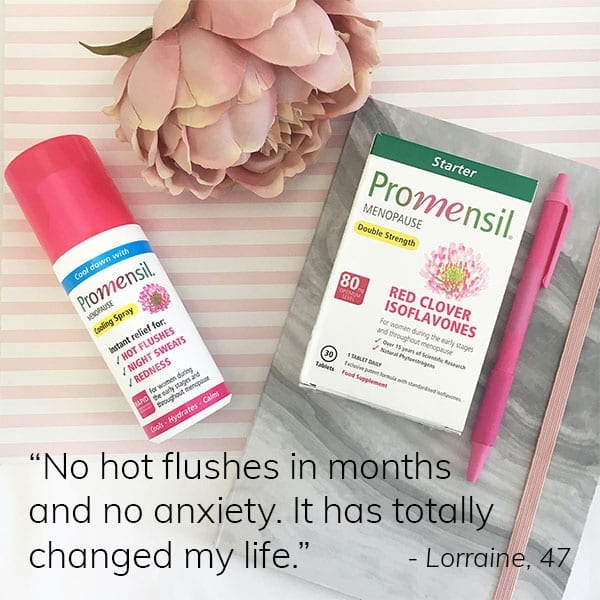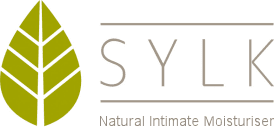Menopause Health Hub
Understand your hormonal journey and discover expert advice and top tips on how to manage your menopause
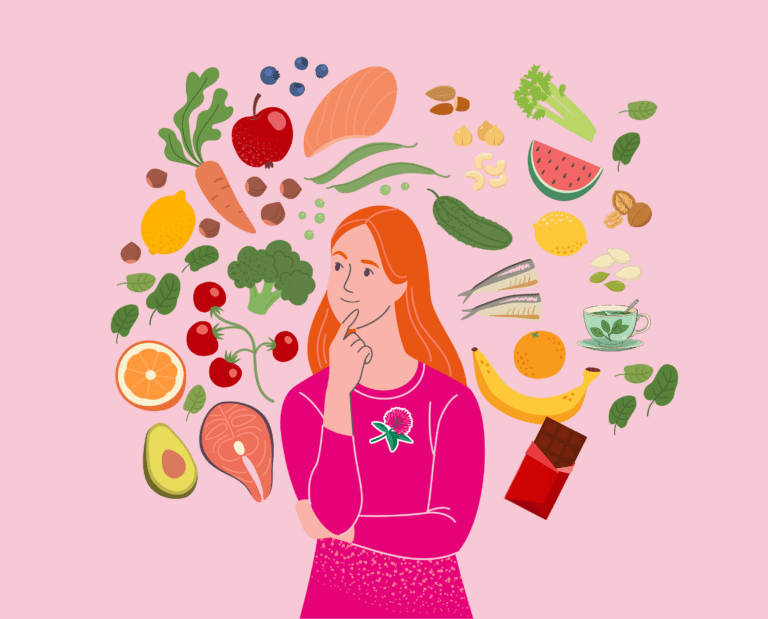
Foods to Beat Hot Flushes and Night Sweats
Menopause is a natural phase of life, but signs like hot flushes and night sweats can be uncomfortable and disruptive. These sudden waves of heat and excessive sweating often occur due to hormonal fluctuations, particularly declining oestrogen levels. While hormone replacement therapy (HRT) is an option for some, many women look for natural ways to manage such menopausal signs. A well-balanced diet rich in certain nutrients can help regulate body temperature, support hormonal balance, and promote an overall well-being during menopause. Phytoestrogen (isoflavone)-Rich Foods Phytoestrogens
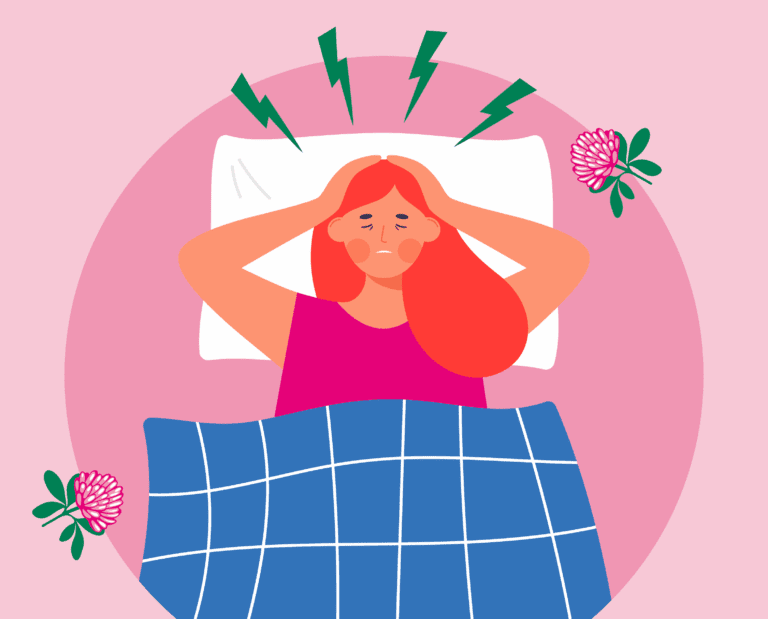
How to Manage Sleep Disruptions During Menopause: A Cooling Solution for Hot Flushes & Night Sweats
Menopause is a natural stage of life, but that doesn’t make it easy—especially when it comes to sleep. Hot flushes, night sweats, and post-sweat chills can leave you waking up multiple times a night, struggling to get comfortable. Since sleep is essential for energy, mood, and overall health, finding ways to manage
Menopause facts
Menopause is not an illness or medical condition, it’s a natural hormonal journey that every woman will experience. Menopause literally means the last monthly period of a woman’s life. However, it is confirmed when a woman has not had a menstrual period for 12 consecutive months. The gradual decrease in the ovaries’ production of oestrogen during this time is simply the body’s natural evolution from the fertile child-bearing years to a whole new stage of life.
Symptoms caused by the natural decline of oestrogen levels in the body can begin many years leading up to a woman’s last menstruation during a time know as peri-menopause, as well as after menopause, known as post-menopause.
For most women, menopause usually occurs between the ages of 45 to 55 and the average age is 51 years.
However, around 1 in 100 women experience the menopause before 40 years of age. The main key difference between the peri-menopause and the menopause is that Throughout the peri-menopause you can experience changing periods – length of cycle, duration of period where as someone going through the menopause will have no periods for 12 months or more.
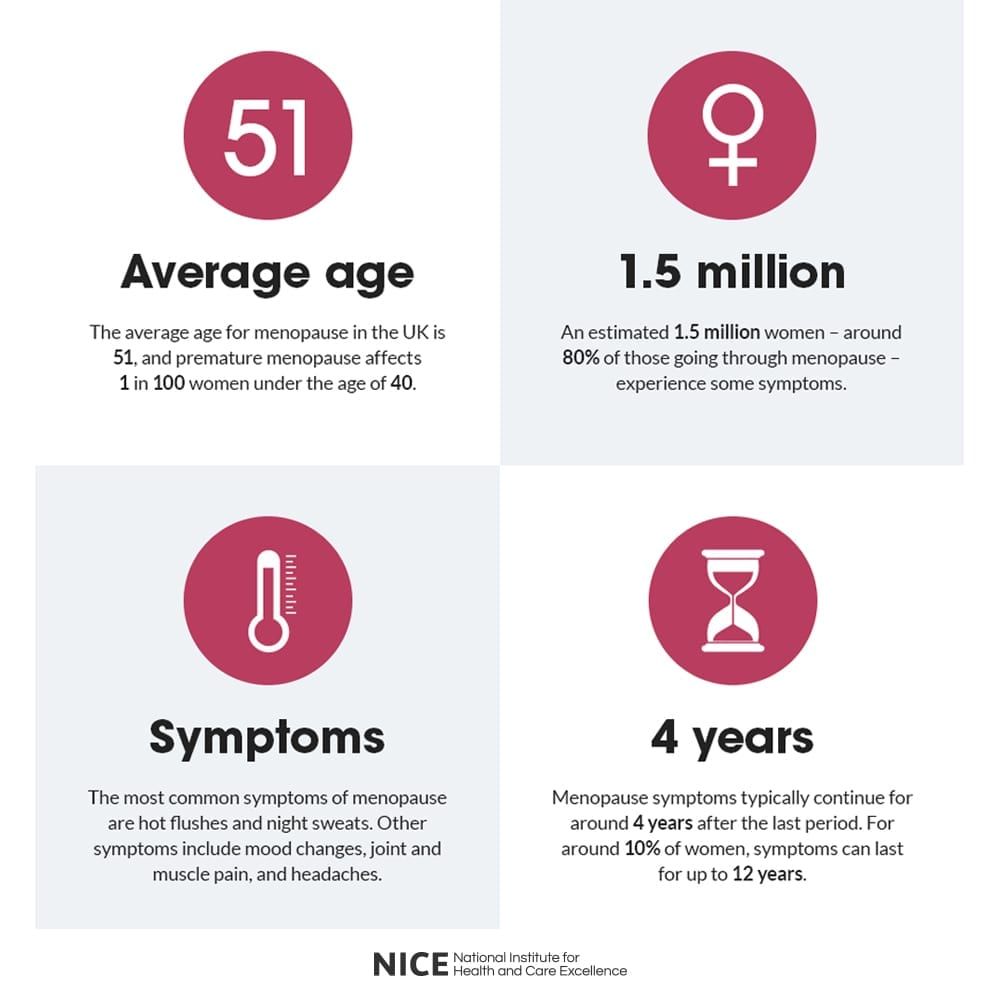
What's Happening To Me?
Stages of a woman’s hormonal cycle
Reproductive Years
12.8 years – late 30s
Oestrogen levels peaking with pregnancy.Transition – Peri phase
Mid 40’s – early 50’s
Fertility is declining. Early transition when periods are more than 7 days different to the normal cycle (21-35 days). Late stage – miss 2 or more cycles or no period for 60 days or more.Early Post Menopause phase
Early 50’s – 60
No period for 12 months or more. Ovaries no longer active. Decline in bone density. Decline in muscle tone. Noticeable drier skin and hair.Later Post Menopause phase
60 plus
No period for 5 years or more. Reduced bone & muscle mass, memory and concentration failing, heart & cardiovascular health can be impacted.
Oestrogen Hormone Levels

Menopause Symptoms
It is estimated that 8 out of 10 women will experience common symptoms leading up to the menopause, such as hot flushes, night sweats, anxiety, insomnia, depression, reduced libido and vaginal dryness, all of which can impact lifestyle and relationships dramatically. It’s about recognising your symptoms and getting the support to help you discover which therapies and lifestyle changes work best for you.
Common menopause symptoms include:
Hot flushes, Poor sleeping, Night sweats, Mood swings, Anxiety, Insomnia, Fatigue, Depression, Irregular or skipped periods, Vaginal dryness, Mood swings and irritability, Racing heart, Brain fog, Headaches, Changes in libido, Joint and muscle aches and pains, Bladder control problems.

Understanding Menopause
How do I know?
‘Is it? Isn’t it? I have skipped a period, nights are restless, but I’m not old enough yet! Am I pregnant or has it really started?’ A whirlwind of thoughts with no one to turn to, to share them. Discussing this delicate matter with friends or relatives may feel awkward. Sometimes, we even feel awkward discussing this with our GPs or other healthcare professionals. So how do you find out for sure? In the words of Dr. Heather Currie, a leading British menopause expert: “What is so bad about openly discussing a physiological process that is simply a hormone deficiency?” The days of grinning and bearing it are on the way out. There are no prizes for martyrdom. The safest and most natural place to discuss menopause is with your healthcare professional, where you are most likely to obtain good advice, without being judged. Here, we would like to give you some basic factual information about the stages of menopause.
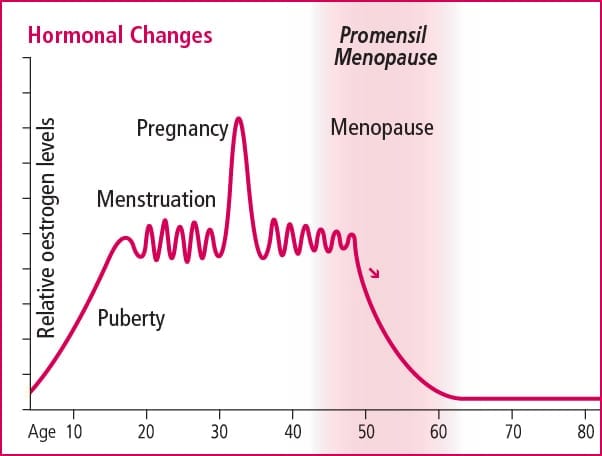
Peri-menopause
Natural midlife changes start when your periods become irregular. Peri-menopause refers to the time leading up to menopause when the cycle length and menstrual flow can vary significantly. The gradual decrease in the production of oestrogen in the ovaries during this time is simply the body’s natural evolution from the fertile, child-bearing years to a whole new stage of life.
If you are in your 40s, or sometimes even earlier, you may have started to experience some of the normal and natural changes that signal peri-menopause. The time between periods can shorten or lengthen, the periods can become heavier or lighter. The fluctuations in the hormones can produce a host of symptoms, which can last up to several years. Peri-menopause can best be summed up as the time when your body gets ready for menopause. At menopause our oestrogen and progesterone levels become quite low. It is during peri-menopause that our body gets ready for these new, lower levels.
Every woman is unique, as is her experience of menopause. If you are unsure about the changes you are feeling, the best thing is to speak to your healthcare professional, who can help you clarify some of these changes and suggest the best way to ease symptoms you might be experiencing.
What is premature menopause?
Premature menopause is defined as the onset of menopause before the age of 45. It affects one in every hundred women under 40, one in 1,000 under 30 and one in 10,000 under 20.What is menopause?
Menopause literally means the last monthly period of a woman’s life. However, it is confirmed when a woman has not had a menstrual period for 12 consecutive months. For most women, menopause usually occurs between the ages of 45 to 55 years and in the UK the average age is 51 years. Oestrogen levels play an important role in a woman’s life. They rise at puberty with the onset of childbearing years and then increase and decrease rhythmically with your menstrual cycle. They peak during pregnancy and then decline as you reach menopause and your menstrual cycle ceases (see graph above).What is post menopause?
The term post menopause literally means ‘after menopause’. Post menopause can be confirmed when a woman has not had a menstrual period for 12 consecutive months. At this stage, tangible symptoms have probably reduced, but now is the time, when you need to start looking after your bones, heart and cholesterol levels. Up until menopause, natural oestrogen provides a protective effect on your heart and bones. As oestrogen declines, it is important to provide suitable nutrients to help keep the bones strong and your cholesterol levels low.#TryNaturalFirst
A Natural approach to menopause
We understand that for many women, HRT will be the first go-to option, while others may find that a more holistic and natural approach works best for them. It’s about recognising your symptoms and getting the support to help you discover which therapies and lifestyle changes work best for you.
Promensil advocates a natural approach to menopause, we are proud to work closely with specialist menopause organisations and associations who also welcome a natural approach and believe in providing women with assistance in lifestyle changes and advice.
Let’s work together and let’s talk menopause #TryNaturalFirst




